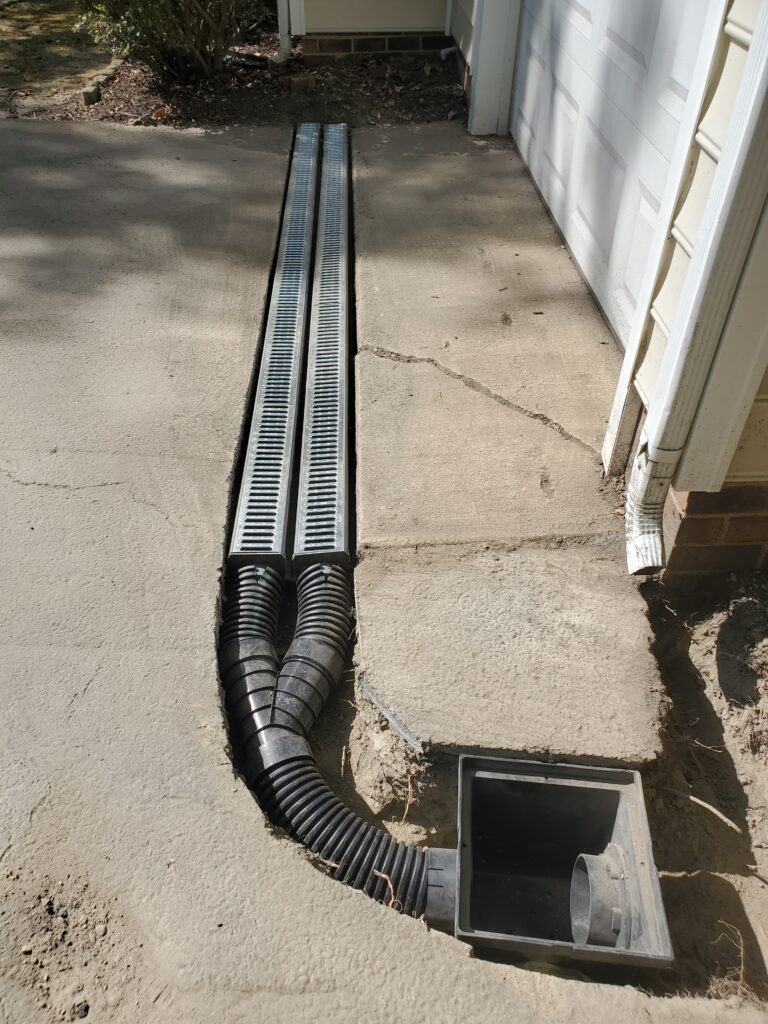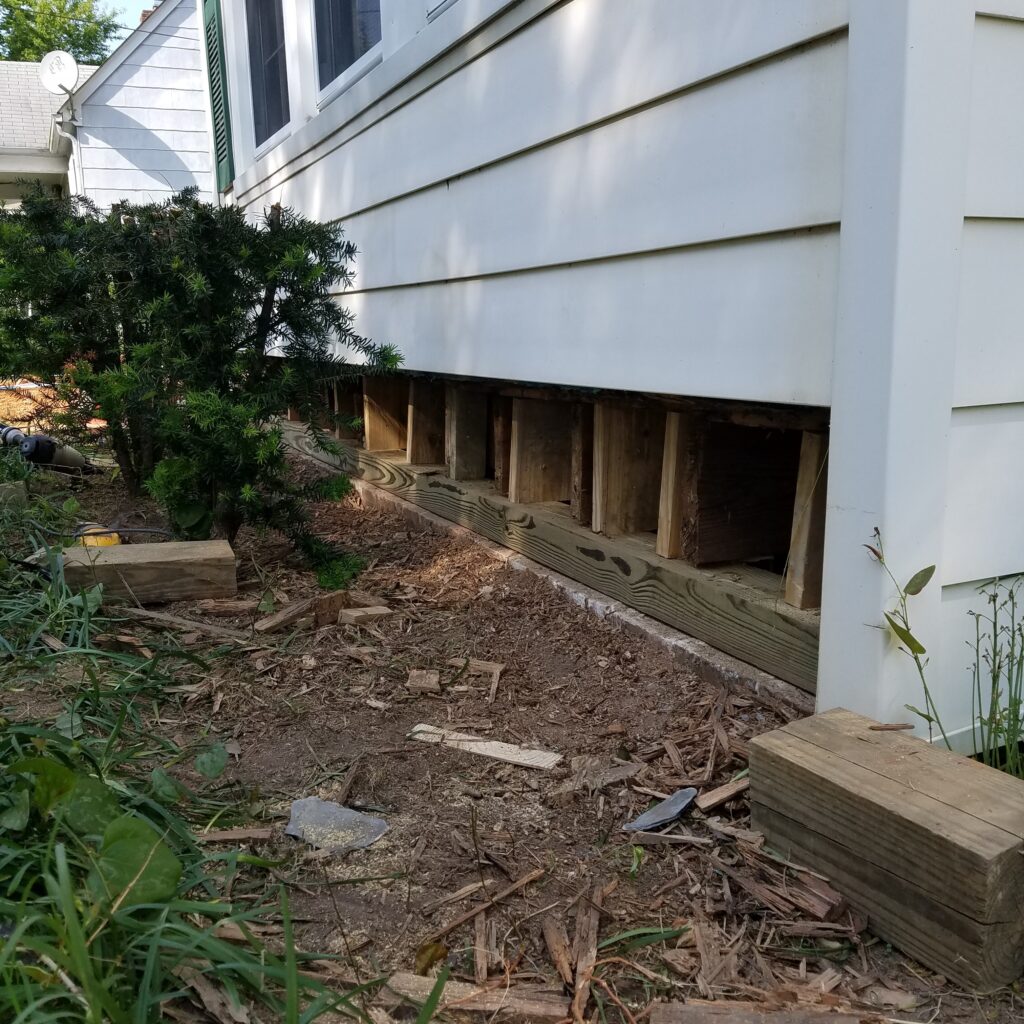A flooded basement floor can cause significant damage to your property and be a real nightmare to deal with. It can also pose a serious safety risk to you and your family. There are a number of steps you can take to avoid flooding in your basement.
We’ll take a look at some useful tips and tricks that can help you keep your basement floor and basement walls dry and safe.
Understanding the Causes of Basement Flooding
Before we dive into preventive measures, it’s essential to understand the common causes of basement flooding rain. Some of the most common causes of basement flooding include:
Heavy rain
Plumbing leak
Cracks in the basement walls
Blocked gutters and downspouts
Sewer lines backups
Malfunctioning sump pumps
Poor drainage systems or gutter system
Excess water pressure or hydrostatic pressure

Tips and Tricks to Prevent Basement Flooding
Install a sump pump.
Any homeowner hoping to avoid basement flooding would be wise to invest in a sump pump. By pumping water out of the basement and away from the foundation walls, it aids in keeping the basement dry. Make sure to choose a sump pump with a battery backup system to ensure it continues working even during a power outage.
Fix any foundation cracks.
Cracks in your foundation walls can allow water to seep into your basement, leading to foundation damage and, of course, flooding. Make sure to inspect your foundation walls regularly for any cracks and seal them immediately.
Clean your gutters and downspouts.
Blocked gutters and downspouts can cause water to overflow and pool around your foundation walls, leading to basement flooding. Keep your downspouts and gutters clean regularly to prevent flooding in basement from happening.
Grade your landscape
The slope of your landscape can significantly impact the likelihood of basement flooding. Make sure to properly grade your landscape away from your foundation walls to prevent water from pooling around them.
Install window well covers.
Window wells are a common entry point for water into your basement. Installing window well covers can help keep water out while still allowing light and ventilation.
Install a backflow valve.
A backflow or backwater valve prevents sewage from flowing back into your basement in the event of a sewer backup. It’s an essential investment for any homeowner, especially if you live in an area prone to sewer backups.
Waterproof Your Basement
Waterproofing your basement is an excellent preventive measure against basement flooding. A professional contractor can help you identify the best waterproofing option for your basement.
Inspect your plumbing regularly.
Regular plumbing inspections can help you identify any potential problems that can lead to basement flooding. Make sure to inspect your plumbing system regularly and fix any leaks or clogs promptly.
Install a water alarm.
A water alarm can alert you to any potential flooding in your basement, giving you enough time to take preventive measures before the situation gets out of hand.
What to Do in the Case of Basement Flooding
Despite taking preventive measures, your basement may still flood, especially during heavy rains or storms. It is essential to know what to do to minimize damage and keep yourself and your family safe. Here are some steps to take in the event of basement flooding:
Turn off your electricity and gas to avoid electrocution or gas leaks.
Remove any valuable items from your basement, including furniture, electronics, appliances, and documents.
Use a wet-dry vacuum or a pump to remove as much water as possible from your basement.
Open doors and windows to promote ventilation and drying.
Use fans, dehumidifiers, and heaters to dry out your basement. Make sure to follow the manufacturer’s instructions and take the necessary safety precautions.
Disinfect and clean any affected surfaces with a solution of bleach and water.
Call a professional water damage restoration company to help you assess the damage and restore your basement.

The Benefits of Hiring a Professional for Basement Waterproofing
While it’s possible to waterproof your basement yourself, hiring a professional has several benefits. Here are some of the advantages of hiring a professional for basement waterproofing:
Expertise and Experience
Professional waterproofing contractors have the expertise and experience to identify the best waterproofing solution for your basement. They can also help you address any underlying issues that may lead to basement flooding, such as foundation cracks or poor drainage systems.
Quality Materials and Tools
Professional waterproofing contractors use high-quality materials and tools that are designed to withstand moisture and prevent water from entering your basement.
Long-Term Cost Savings
While hiring a professional for basement waterproofing may seem like a significant investment, it can save you money in the long run. A professional waterproofing job can significantly reduce the risk of basement flooding, saving you from costly repairs and replacements.
Peace of Mind
Hiring a professional for basement waterproofing can give you peace of mind, knowing that your basement is well protected against flooding and moisture damage.
Hiring a professional for basement waterproofing is a wise investment for any homeowner looking to protect their property and keep their basement dry and safe. If you’re worried about the costs, try to avail yourself of homeowner’s insurance to protect you from any
Basement flooding can be a real headache for homeowners, but with the right preventive measures, you can keep your basement dry and safe.
Installing a sump pump, fixing any foundation cracks, cleaning your gutters and downspouts, grading your landscape, installing window well covers, installing a backflow valve, waterproofing your basement, inspecting your plumbing regularly, and installing a water alarm are some of the most effective preventive measures you can take to prevent basement flooding.
Preventing basement flooding requires a combination of preventive measures, regular maintenance, and vigilance. By following the tips and tricks outlined in this article, you can significantly reduce the risk of basement flooding and keep your property safe and dry.
Frequently Asked Questions (FAQs)
How do I know if my basement is at risk of flooding?
If your basement is prone to dampness or you notice water seepage, it’s a clear indication that your basement is at risk of flooding.
Can I install a sump pump myself?
While it’s possible to install a sump pump yourself, it’s always best to hire a professional to ensure it’s done correctly.
How often should I inspect my plumbing system?
It’s recommended to inspect your plumbing system at least once a year to identify any potential problems that can lead to basement flooding.
Can I waterproof my basement myself?
While it’s possible to waterproof your basement yourself, it’s always best to hire a professional contractor to ensure the job is done correctly and effectively.
What should I do if my basement floods despite taking preventive measures?
If your basement floods despite taking preventive measures, it’s essential to act quickly to minimize damage. Turn off your electricity and gas, and remove any valuable items from your basement.
Call a professional water damage restoration company to properly grade the status of your home’s piping, hairline cracks, sewer lines, and water damage and help you clean up and dry out your basement floods.
